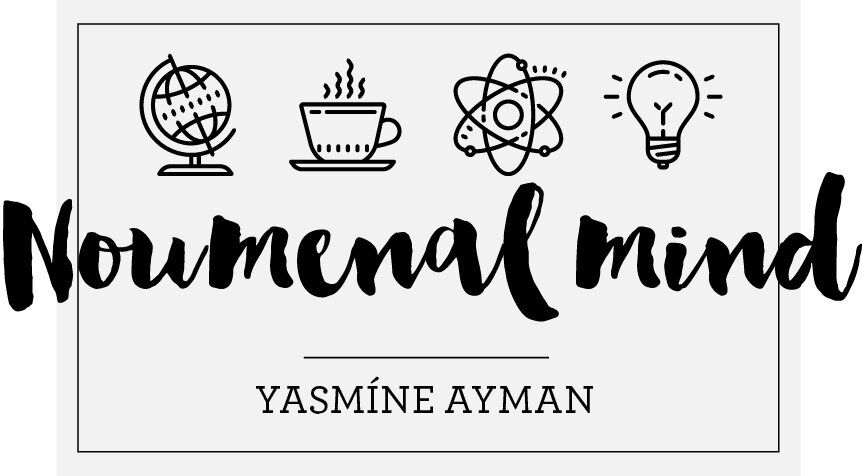Last Saturday I attended a roundtable at The Helix Center for Interdisciplinary Investigation. The roundtable was titled “Fake” Knowledge: Knowing and the Illusion of Knowing” and the speakers were Paul Boghossian, Daniel Kahneman, Eric Kandel, Marc Mitton, Daphna Shohamy and Steven Solom. Each speaker came from a different field that grapples, in some way or the other, with the concept of knowledge. Boghossian is a philosopher, Kahneman a behavioural economist, Kandel a neuroscientists/former psychoanalyst, Mitton a magician, Shohamy a psychologist and Solomon a linguist.
I was especially excited to meet Eric Kandel, since his book “In Search of Memory” is one of the reasons I feel so compelled to conduct research on memory and Alzheimer’s disease. Kandel himself used to be a psychoanalyst, which was interesting in light of his staunch advocation for empirical evidence and falsifiability. Psychoanalysis focuses on the interplay between the conscious and unconscious mind and is often studied through dreams. Freud, a key proponent in the field, is often criticized for having pseudoscientific views due to the unfalsifiability of his claims. From this empirical knowledge, however, Kandel and the other speakers agreed, we develop a collective knowledge; we rely on testimonies through a deliberative process. Where the views diverged was when the speakers started discussing the “truth” behind the testimonies.
I was reminded of a “What is Science” reading by David Helfand we went through in one of my classes, where one of the attributes of science is that it can not “prove” anything to be “true”. Kahneman introduced the topic of science as a source of truth by stating that the scientific community has developed, what he would call, a “scientific arrogance”- we think we know everything and that our methods to attain this knowledge are superior to any other system of knowledge. As a result, he likened science to a religion. He said some people know Jesus existed, for example, or that God created the universe in 6 days- for some, religion is the most secure and credible source of truth. Who are we then to say otherwise? Boghossian responded by saying that “Science is just one religion among many”; however, that made me think “Can we simultaneously subscribe to two religions then?”. Furthermore, while Kandel said we have to convince people of science, Kahneman said that we have to empathise with people who have different beliefs. I would say I have to agree more with the latter, although I do believe science is one of the cynosures of human development, and that the scientific method is a rigorous and systematic way to near material truth. Nevertheless, if we do not empathise with different schools of thought, will we ever be able to overcome the division and latent strife existing between the different factions?
Another interesting concept discussed at large was the feeling of understanding and ‘knowing’, and how that may deem actual knowledge irrelevant. Kahneman, for example, contended that the experience of knowing is the same whether or not the information dovetails with the truth. There is an element of faith in this, but also an element of humility. We must accept that we can maybe never truly know anything, whether through science, metaphysics or religion, and that our best bet is to beat on in our rigorous inquiry into the nature of the mind and the physical realm we so limitedly perceive with it.
At the end there was a question and answers portion, and one question/comment particularly stood out to me. It grappled with the idea that there may be a paradigm shift in how we conceptualise consciousness: rather than the neural circuits in our brains giving rise to consciousness, consciousness is giving rise to the neural circuits. The question was basically what the speakers held of this. I myself had heard of this conceptual shift and was curious to hear the response. The response, however, was along the lines of “We are not aware of this shift in paradigms and we therefore have nothing to say”, and so the matter was left at that.
I was perplexed- didn’t the most extraordinary achievements arise from, well, being out of the ordinary? My thoughts jumped from John Stuart Mill’s essay On Liberty to the topics recently covered in Frontiers of Science, specifically Einstein and his revolutionizing Theory of Relativity. It was this theory that both challenged the norms of society and stretched the limits of human imagination. If you think about it, the whole concept of gravity warping space and time has some fantastic element to it, yet one German man in the early 1900s concocted a theory so intricate in structure, that we only concretely detected its consequences (gravitational waves) a hundred years later. This was what I wanted to ask the thinkers around the table about- the role of imagination in our pursuit of knowledge.
And so I did. I guess due to time constraints and the sheer scope of the topic, the response I got was not as elaborate as I would have liked. Nevertheless, Boghossian, Shohamy and Kandel each expressed how vital creativity is in science. Shohamy also emphasised the importance of believing and advocating for your theories. She said that if you want to advance in the scientific field you must be so convinced by your findings and ideas that you can convince the rest of the community. If I had time I would have followed up with a question on why the scientific community so vociferously rejects certain challenges to reductionist claims and if that is hindering breakthroughs in the study of the mind, but perhaps that is best left for another time.
After the program I went and introduced myself to my neuro-hero, Eric Kandel. We spoke in german and I told him that the lab I work in was working with one of his post docs on an age related memory loss protein, RbAp48, in order to see what would happen to it in the Alzheimer’s pathology. He said he was delighted to see such enthusiasm and gave me his card, offering to meet with me in his office (which is right under the lab I work in) in the coming week.
Come the next friday, I walked down to his office and we spoke about a career in science, as well as his tumultuous, but extremely successful (duh) career. He told me that I need to keep on asking questions until I find one question I feel so passionately about, that I want to dedicate my life to answering it as best as science can. His ‘question’ must have been about memory, and I am excited to see what mine will be.
We also spoke about his books, particularly about Reductionism in Art and Brain Science - Bridging the Two Cultures, which is a book that interlaces his two loves, neuroscience and art history. I was also excited to see the manuscript for his latest book, which will be coming out soon. Our conversation was enlivened with German, as well as marvelling the new neuroscience building on 125th and I had a great time. Finally, I left with a big smile on my face and “You have multiple brains” ringing in my head as I walked back to my pipettes and measuring cylinders.



